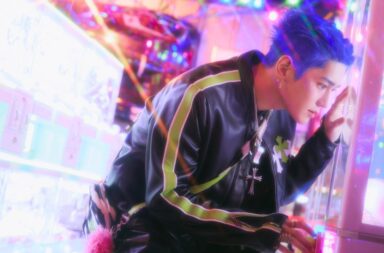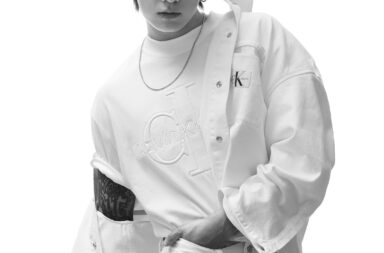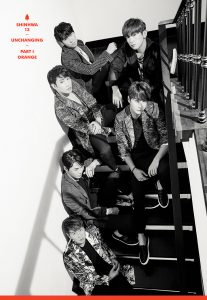 The past few years have brought back influential idol acts from before K-pop reached international success. Some acts, such as BoA, Shinhwa, Lee Hyori, and TVXQ, have been a constant presence in one way or another. Several groups, such as Sechskies and S.E.S, have made unexpected but welcome returns.
The past few years have brought back influential idol acts from before K-pop reached international success. Some acts, such as BoA, Shinhwa, Lee Hyori, and TVXQ, have been a constant presence in one way or another. Several groups, such as Sechskies and S.E.S, have made unexpected but welcome returns.
A commonality amongst all of these comebacks and reformed groups is that they are now facing a different audience, one that now also includes an international audience that extends beyond Japan. Some acts will use variety shows and reality shows to make them known to fans who would otherwise not know of them. Some, such as Seo Taiji for their 25th Anniversary, will collaborate with one of the newer acts.
With this in mind, we ask the writers: What is your connection to these legends of K-pop? How have they influenced your K-pop experience, and what about them would you want newer K-pop fans to know?
 Pat: I have always held TVXQ as my standard for the typical idol K-pop music. I got into them back when I was still listening to J-pop, and accidentally downloaded some of their Korean stuff instead of Japanese. I was hooked. It also led me to BoA, who at that time I only identified as the Inuyasha credits singer. Until now, these two acts are always the ones I pay most attention to, no matter what.
Pat: I have always held TVXQ as my standard for the typical idol K-pop music. I got into them back when I was still listening to J-pop, and accidentally downloaded some of their Korean stuff instead of Japanese. I was hooked. It also led me to BoA, who at that time I only identified as the Inuyasha credits singer. Until now, these two acts are always the ones I pay most attention to, no matter what.
They are my golden standard when it comes to idol music. Which is why I see red whenever I see someone brush off their accomplishments so easily. They survived in Japan with little precedent of Korean singers making it in that industry. This made it possible for everyone else to try their hand at the second largest music industry market in the world. Until now, it can be easily argued that no one has really come close to their success in Japan. They may not be achieving perfect all-kills, or 100 wins on music shows, but they do not deserve to be brushed off easily.
I am looking forward to TVXQ’s release being as welcomed as BoA’s “Camo” and Shinhwa’s post-2012 comebacks have been.
Also, “Mirotic” and “Girls on Top” are iconic. Fight me.
Jennifer: I think the first time I ever heard a K-pop song was when I was in elementary school? My sister had introduced BoA and Hyori to me as a child, and then when we got older, TVXQ and Super Junior came into the picture and changed everything. They were pretty formative in terms of my music tastes: BoA led me to Japanese singers and other anime, and I never really listened to American 2000’s music, because then I moved onto TVXQ and Super Junior. They were so formative in terms of the industry, too: they managed to promote in other countries, were allowed to promote separately, and really set a precedent for idol-fan interaction.
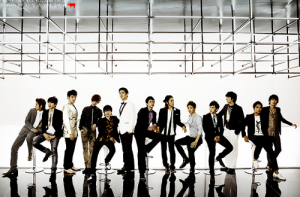 Each generation of K-pop has contributed to the international success of K-pop, and while the current generation of K-pop has really built a bridge between K-pop and their international audience, the older generations set up that foundation. They deserve as much recognition.
Each generation of K-pop has contributed to the international success of K-pop, and while the current generation of K-pop has really built a bridge between K-pop and their international audience, the older generations set up that foundation. They deserve as much recognition.
Camiele: I don’t mean to sort of copy everyone here, but honestly TVXQ was K-pop for me. They were, without my knowledge, my first intro into the genre. I want to say in 2007, I’d been browsing the cable channels at my parents’ house. Starz at some point had been doing a spotlight series to showcase some of the biggest but possibly underrated or unknown (to “Western” audiences) acts. I’m always interested in learning about new music. So this group with crazy, wild hair was being touted as the group that was in the Guinness Book of World Records as the one with largest fanclub. I was only vaguely paying attention, but I do remember this dude with this LARGE geometrical haircut (who I now know as Jaejoong during Tri-Angle era).
Years later my friend introduced me to this dude with “the voice of an angel, he plays football like Maradona, and he’s gotta rear-end to die for”: Kim Junsu. The video? “Intoxication.” She told me more about the group he was in, and let’s just say I died a thousand deaths.
So, yeah TVXQ is the epitome of K-pop to me. Newer generations of K-pop fandom are more prone to erasure and complete disrespect because their bias groups are a) closer to their age range, and b) are more relevant because of their presence on YouTube and social media, an avenue that wasn’t available for these older groups (who still managed to be multi-million selling artists).
What I want them to understand and realize is that these groups have already conquered a huge facet of the international market. When most fans nowadays say “international” what they’re really saying is “Western” and more specifically recognition from the States. TVXQ and BoA paved the way for every these young groups to have unconscionable success outside of Korea. Japan and China are massive markets, and TVXQ did it, not with subunits, not as a K-pop group, but as a J-pop group releasing separate full-length J-pop albums. They went from office to office hand-promoting their albums. Did endless promotion on radio and television — in Korea! There’s a reason they’re called “your idol’s idol.” Because these new groups know they’d not be where they are without them.
Kabejja: I recently discovered Lee Hyori through her reality show, Hyori’s Homestay, a lovely, heartwarming show where she and her husband start a B&B in their house in Jeju. It has been interesting to see her on the show, talking about her experiences in the industry to IU who is a helper on the show. In one particular moment she talks about not worrying about coming after newer artists in the charts. She has this carefreeness that only comes after years of being in the industry and that I wish every artist could have and perhaps should have.
Doing this reality show has been a genius move for her — its popularity is getting her name back in the headlines and introducing her new persona, more simple, minimal and down-to-earth one, to the public. She mentioned during her promotions for her most recent album about disliking her previous music, but she was a pioneer inspiring other female soloists, an obvious one being Hyuna. Also, “U Go Girl” will always be a brilliant tune.
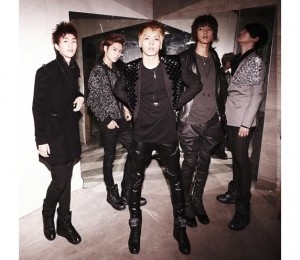 Liz: I accidentally discovered Shinee in elementary school when I was on this gaming platform that showed “music videos” that players made of their in-game avatars and friends. One of these videos was to Shinee’s “Ring Ding Dong”, and because the game’s theme of the week was Japanese, and I had never heard a word of Korean in my life up until that moment, I honestly thought it was a Japanese song for the longest time.
Liz: I accidentally discovered Shinee in elementary school when I was on this gaming platform that showed “music videos” that players made of their in-game avatars and friends. One of these videos was to Shinee’s “Ring Ding Dong”, and because the game’s theme of the week was Japanese, and I had never heard a word of Korean in my life up until that moment, I honestly thought it was a Japanese song for the longest time.
However, some time later, I came across SNSD‘s “Gee”, Taeyang‘s “Only Look at Me”, and Super Junior’s “Mr. Simple” on YouTube, and that was when it dawned on me that Shinee was K-pop. Those groups will always hold a special place in my heart for teaching me about what the Korean language sounded like. They were often considered the faces of K-pop around the peak of the hallyu wave, so I suppose they were a lot of people’s first forays into the genre as well.
I had heard of BoA when I got into K-pop, but I never really listened to her up until quite recently. I saw her on the 2016 drama This Week My Wife is Having an Affair. Thinking that she was really gorgeous and a good actress, I went and listened to her recent songs — at the time — and older ones. And I thought it was really awesome how she was able to forge her own way into the Japanese market, building her career from the ground up there at a time when it was rare to see K-pop artists doing that.
Gaya: I came into K-pop just as TVXQ were making their first comeback as two; but even though l missed the OT5 glory, our Cassie-heavy team at the time made sure I knew what was up. Even though we have more BTS fans as well (following an intense bout of Exo fever), as we can see, Cassies still represent at Seoulbeats.
While adding my voice to the chorus of BoA love — that woman is amazing and you should all listen and relisten to her music — I want to also give a shout out to SM quartet and DBSK’s sister group, CSJH the Grace. Though their music is not all to my personal taste, I greatly respect their skill and teamwork — they aren’t the K-pop acapella queens for nothing.
Which legendary K-pop act do you hold dear? Let us know in the comments below!
(YouTube [1][2][3[4], Images via SM Entertainment, Shinhwa Company, Avex)

